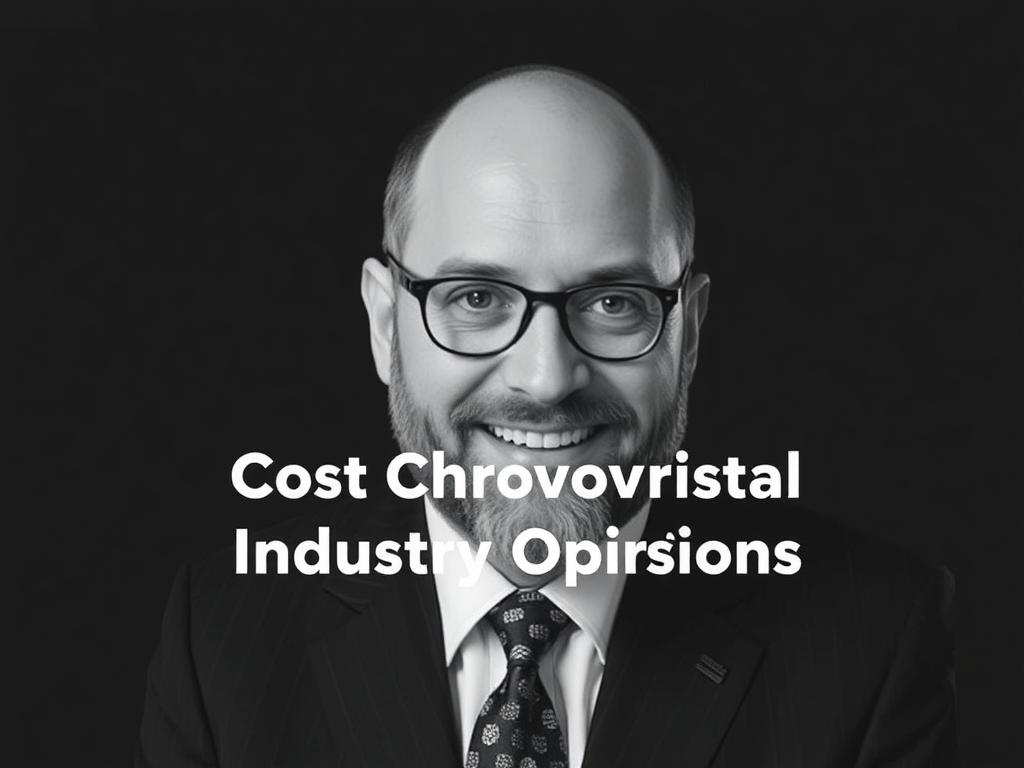
Daniel C. Moura is a name often echoed in industry circles as a thought leader unafraid to challenge conventional wisdom. Over the years, he has voiced several opinions that sparked intense debates, earning him both admirers and critics alike. His controversial industry opinions, while sometimes polarizing, encourage us to rethink longstanding beliefs and open discussions about the future trajectory of many sectors. Whether you’re a professional navigating complex markets or simply curious about disruptive ideas, Moura’s thoughts offer a valuable perspective worth exploring.
Unpacking Daniel C. Moura’s Boldest Industry Views
Daniel C. Moura has never shied away from questioning the status quo. His most controversial industry opinions often focus on the impact of emerging technologies, organizational dynamics, and ethical considerations in business. For example, he argues that traditional hierarchy in corporate environments often stifles innovation rather than supports it. This runs counter to many established management theories that emphasize clear, top-down leadership.
Another of Moura’s widely discussed opinions addresses the overhyped role of artificial intelligence (AI) in the near future. While many experts predict AI will revolutionize every facet of industries overnight, Moura cautions against this optimism. He believes that although AI has significant potential, its adoption will be slower and more nuanced due to regulatory, social, and economic barriers. This argument challenges the “AI will fix everything” narrative that dominates many conferences and think pieces.
The Debate Over Corporate Ethics and Profitability
One of Daniel C. Moura’s controversial industry opinions centers on the delicate balance between ethics and profitability. Moura asserts that companies often use “corporate social responsibility” (CSR) as a marketing tool rather than a genuine commitment, which risks undermining public trust. He suggests instead that authentic ethical behavior should be embedded deeply into a company’s culture—not just showcased during quarterly reports or promotional campaigns.
His stance is that regulators and consumers alike need to push for transparency that goes beyond surface-level CSR gestures. This opinion resonates differently depending on which side of the debate one falls. Some industry leaders agree, seeing CSR as sometimes symbolic, while others argue that any step toward ethical practices is valuable, even if imperfect.
Technology and Job Displacement: Moura’s Perspective

In an era dominated by talk about automation and job loss, Daniel C. Moura’s views offer a measured yet provocative take. He acknowledges that certain jobs will become obsolete, but he warns against fatalistic predictions of mass unemployment disasters. Moura suggests that rather than fear technology, industries should focus on re-skilling workers and redesigning jobs to complement technological advancements.
To illustrate this, he points to sectors like manufacturing and logistics where machinery has taken over repetitive tasks but has also created new roles requiring more complex problem-solving skills. Moura’s optimism about workforce adaptation is controversial because it counterbalances voices predicting dystopian futures. His position encourages policymakers and businesses to invest proactively in human capital development.
Key Controversies Summarized in a Table
| Controversial Opinion | Description | Industry Impact | Public Reaction |
|---|---|---|---|
| Hierarchy Stifles Innovation | Traditional management structures limit creative problem-solving. | Calls for flatter organizational models and increased autonomy. | Divided; some embrace flexibility, others fear loss of control. |
| AI Adoption Will Be Slower | Regulatory and social factors prevent rapid AI integration. | Shifts focus to realistic timelines and incremental implementation. | Skeptical experts criticize perceived pessimism. |
| Authentic Ethics Over CSR Window Dressing | Corporate social responsibility is often superficial. | Pushes for transparency and embedded ethical values. | Support from activists; resistance from some business leaders. |
| Reskilling Over Fear of Automation | Technology displaces some jobs but creates others needing new skills. | Influences training programs and workforce development strategies. | Mixed reactions; hope balanced with concerns about execution. |
Why Do Moura’s Opinions Matter?
It’s easy to dismiss controversial views as contrarian, but Daniel C. Moura’s opinions hold significant value precisely because they provoke essential questions. When industries uncritically accept optimistic or pessimistic narratives, they risk missing important nuances. Moura’s perspectives remind us that complex systems like markets, technologies, and organizations require careful study and balanced approaches.
His critiques of hierarchy push companies to rethink how they empower teams, potentially unlocking creativity and agility. His realistic appraisal of AI adoption tempers hype, allowing businesses to plan more sustainably. His call for authentic ethics challenges superficial marketing tactics and encourages deeper responsibility. Finally, his focus on reskilling helps societies prepare for inevitable shifts in labor markets, framing them as opportunities rather than threats.
List of Industry Lessons from Daniel C. Moura’s Opinions
- Question entrenched management models to foster innovation.
- Maintain skepticism about technology timelines to avoid overpromising.
- Embed ethics into company DNA instead of using CSR as a facade.
- Invest in continuous education and training to adapt to change.
- Balance optimism and realism when assessing industry transformations.
Conclusion
Daniel C. Moura’s most controversial industry opinions challenge us to think differently about innovation, technology, ethics, and the future of work. While not everyone agrees with him, his views serve as important catalysts for dialogue and reflection. By exploring these bold perspectives, industries can avoid complacency and prepare thoughtfully for the challenges ahead. Whether you agree or disagree, Moura’s opinions remind us that progress often begins with questioning what we think we know.





Recent Comments